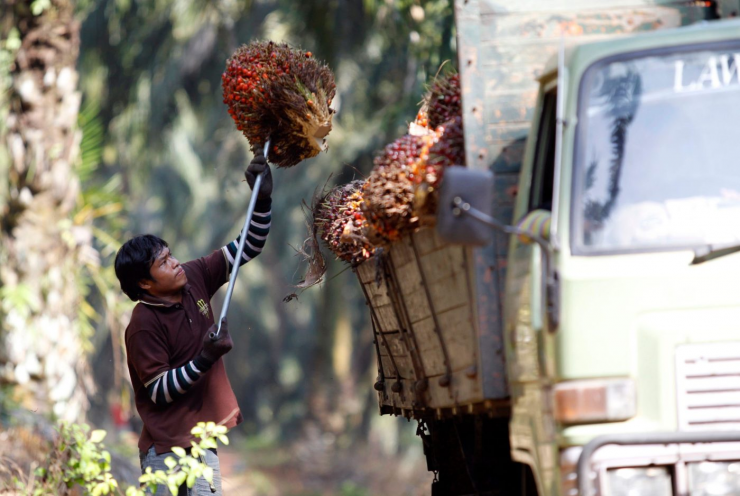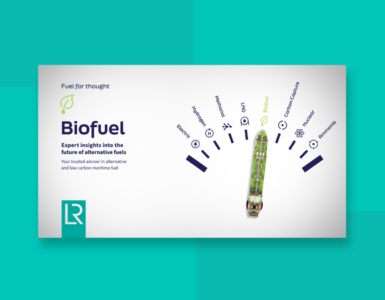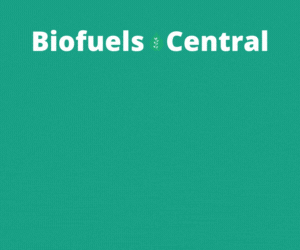Who gets to define sustainable palm oil?
[This article appeared in China Dialogue]Very few commodities are more geographically concentrated in their production than palm oil. In 2020, Indonesia and Malaysia produced 59% and 26%, respectively, of the world’s palm oil. Sometimes referred to as “red gold”, the naturally reddish vegetable oil is widely used in cooking, food processing, cosmetics, chemical production and as a biofuel.
Palm oil is an important source of economic growth and livelihoods in both countries. But it has also been associated with environmental degradation and human rights abuses. As a response to growing consumer awareness of these issues in the US and Europe, in 2004, the World Wildlife Fund (WWF), Malaysian Palm Oil Association and a few multinational companies including Unilever started the Roundtable on Sustainable Palm Oil (RSPO), a voluntary initiative that promotes sustainable production of the commodity through certification schemes and standards.
🔥 What about we co-host a webinar? Let's educate, captivate, and convert the biofuels economy!
Biofuels Central is the global go-to online magazine for the biofuel market, we can help you host impactful webinars that become a global reference on your topic and are an evergreen source of leads. Click here to request more details
Western users of palm oil have long been putting pressure on their Asian suppliers to improve sustainability practices. In 2009, the EU applied restrictions on Asian palm oil biofuel imports. Lim Keng Yaik, former Malaysia’s Minister of Primary Industries, called it “green neocolonialism.”
The RSPO tries to apply pressure from consumers in affluent Western markets to producers in Asia. But in recent years, governments and industry groups in Indonesia and Malaysia increasingly see the RSPO as too demanding and having too much say in the global supply chain.
“Sometimes I use the word ‘cartel’ [to describe RSPO],” says Dr. Ahmad Parveez Ghulam Kadir, director-general of the Malaysia Palm Oil Board (MPOB).
Turning the table, both countries initiated their own national certification schemes: in 2011, the Indonesian Sustainable Palm Oil (ISPO) standard was born. Four years later, Malaysia unveiled its equivalent, the Malaysian Sustainable Palm Oil (MSPO) standard. Since then, both countries have been campaigning globally to win recognition of their standards, and the right to define sustainable palm oil on their own terms.
Who gets to define sustainable palm oil?
‘Green’ palm oil: who should decide?
RSPO has strong buy-in in the European market with 86% of non-biofuel palm oil imported by the 28 EU member states and Switzerland being RSPO-certified in 2019. Globally, however, RSPO certified palm oil only accounts for 19% of total annual production, most of which is sold to Europe. In stark contrast, in the world’s top two importing countries, India and China, RSPO makes up only 3% and 4% of the market, respectively.
Dr. Parveez said that in order to gain RSPO certification, producers have to cut profits, which is not really sustainable. “What I feel uncomfortable about is [that the RSPO] keep on changing their goalposts, keep on making it more difficult, more stringent, adding more features.”
As national standards, ISPO and MSPO are rapidly advancing in their home markets. By the end of 2020, the Indonesian Palm Oil Association (GAPKI) issued 682 certificates covering a total of 3.78 million hectares of land or 27% of Indonesia’s planted palm oil area. The adoption of MSPO is even more impressive. The agency claims that by the end of 2020, about 88% of Malaysia’s total oil palm planted area is covered by MSPO certification.
The standards are making inroads at a time when the EU continues to ask tough questions on the commodity’s sustainability. In 2019, the updated EU Renewable Energy Directive declared palm oil-based biofuel inconsistent with the EU’s environmental policy due to its deforestation risks. The European Commission designated palm oil as a feedstock of high “indirect land use change”(ILUC) risk and announced a phase-out of palm oil as a biofuel by 2030.
The move triggered strong responses from Indonesia and Malaysia as half of the EU’s imported palm oil is used as biofuel. In December 2019, Indonesia put forward a formal complaint against the EU at the World Trade Organization (WTO), the world’s first WTO palm oil trade dispute case. Indonesia’s director general of foreign trade, Indrasari Wisnu Wardhana, said the EU’s policy would not only impact Indonesia’s palm oil exports to Europe, but would also tarnish the image of palm oil products globally.
Malaysia quickly followed suit and filed its own complaint to the WTO’s Dispute Settlement Mechanism. The two countries also launched a global media campaign to rebuild the image of Southeast Asian palm oil. The disputes add urgency to the promotion of ISPO and MSPO as an effort to regain the right to define what constitutes “sustainability” in palm oil production.
Two steps forward, one step back
As national standards, both ISPO and MSPO are backed by government enforcement to raise the level of sustainability in palm oil production. Like the RSPO, both cover general themes on legality, environmental accountability, social responsibility and business practices, but are less stringent in most of those aspects. A comparison of 7 palm oil sustainability standards ranks the RSPO at the top and MSPO and ISPO at the bottom, with the ISPO lagging far behind others.
Over the years, the two countries have attempted to strengthen the standards. In 2014, Indonesia made ISPO certification mandatory for all producers other than smallholder farmer. In 2016, it set up a special working group asking multiple stakeholders to help update the standard in order to increase its international recognition. The group added human rights protection and traceability and transparency principles to the framework and later set out to have independent monitoring of certification implementation. The final aim was to make certification mandatory for smallholders.
READ the latest news shaping the biofuels market at Biofuels Central
Read the rest of the article Who gets to define sustainable palm oil? clicking here








